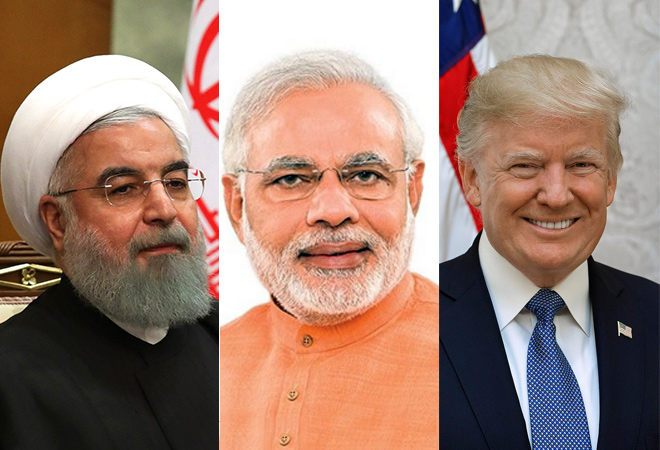Oil meets 84 per cent of India’s energy needs by burning petroleum and more than 80 per cent of the country’s oil demand is met through imports. Therefore, the ongoing US-Iran escalation in the Middle East could have significant ramifications for India.
Although India no longer imports oil from Iran, after the United States ended the exemption in May last year, given the fact that one-sixth of global oil supply is through the Strait of Hormuz near Iran, the escalations will hurt India’s energy demands. The countries like Iran, the UAE, Kuwait, Iraq and Saudi Arabia ship oil through the 39 km long strait.
After the United States announced the killings, the oil prices sought up by 3.56 per cent to 68.70 dollars per barrel compared to 66.25 dollars per barrel in the month of September.
Apart from the oil prices and import, the stability in Iran is crucial for the success of India’s strategic investment in the Chabahar Port. Given the geopolitical and economic importance of the port, India would like to see stability in Iran and the operational port.
The Indians living in various countries of the Middle East including Iran will also face problem if the situation escalates in the Middle East. India would have to deploy its resources for the security of the nationals if the stability of the region is compromised.
The Indian oil companies have already raised the price of petrol by 10 paise per litre while that of diesel by 15 paise per litre; given the rise of oil prices in the international market.
Business Standard
However, the analysts have said that the price rise is short term phenomena, and the markets will stabilize in the next few days, of course, only if Iran chose to not retaliate quickly. “Similar concerns were raised during the attack on Saudi Aramco facilities last year, but Saudi Arabia responded maturely and brought things back on track immediately,” said MK Surana, Chairman and Managing Director of Hindustan Petroleum Corporation (HPCL).
Although, given the $400 billion-plus foreign exchange reserves, India is not as vulnerable to rise in crude prices as it used to be in the 1980s, the culmination of which we saw in the 1991 balance of payments crisis. However, a northward movement in oil prices can adversely harm the GDP growth rate and public finance of the country.
The public finance of India has always been vulnerable to variations in oil prices. As a rule of thumb, a 10 dollar per barrel increase in prices will lead to a burden of $10-11 billion (or 0.4% of GDP) on the current account deficit.
India is third-largest oil consumer in the world in 2019 and may soon surpass China as the second-largest consumer, and fortunes of India are aligned with stability in the Middle East. Therefore, the Indian government always keeps a close watch on sociopolitical stability in the region.
Almost three decades ago- In the late 1980s, India faced a balance of payments crisis. India had nearly no foreign exchange reserves and was only weeks away from being declared a ‘defaulter’ by the international community. One of the reasons behind India being pushed to the verge of default was the near-decade-long unrest in the Middle East, which peaked during the Gulf War.
The political instability in the black gold-rich region pushed oil prices northwards, and India being dependent on imports for more than 80 per cent of its oil demand faced the heat of rising prices. In FY 2018-19, India spent 111.9 billion dollars on oil imports, which constituted more than 20 per cent of total import worth 507 billion dollars.
However, the macroeconomic condition of India is very strong, and therefore, a short term fluctuation in oil prices will not create a1980s like situation. But the stability in crude prices which is based on stability in the Middle East is important for the economic growth of India; given the huge impact, the oil import bill has on India’s public finances.
India, expected to remain neutral as it is right now during the conflict, is perfect for the role of a pacifist between the two countries in this time of probable escalation, when spirits are high on both sides. With the effect it can make not just on India’s interests in West Asia but also on its import bill, and hence the economy, it becomes all the more important for India to play a responsible role in preventing a bloody clash between Iran and the US.
